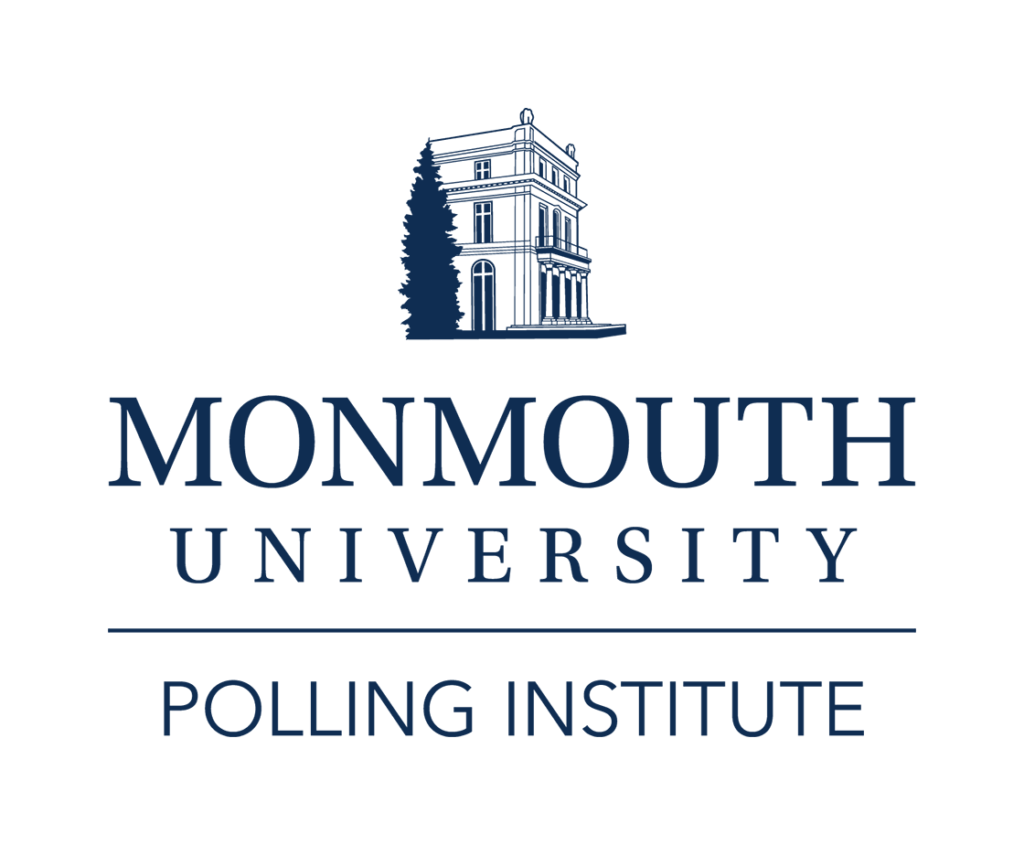West Long Branch, NJ – Ted Cruz commands the top spot in the latest Monmouth University Poll of likely Iowa Republican caucusgoers – his first lead in any early state poll of the 2016 cycle. Donald Trump and Marco Rubio are within a few percentage points of one another for second place. The poll also found that an influential House member’s recent endorsement is only one factor behind Cruz’s rise, which has come primarily at Ben Carson’s expense.
Ted Cruz earns 24% support when likely caucusgoers are asked who they will support in the Republican contest. This marks a clear lead over Donald Trump (19%), Marco Rubio (17%), and Ben Carson (13%). Jeb Bush stands at 6% and Rand Paul is at 4%, while Carly Fiorina and John Kasich earn 3% each. None of the other six candidates tested in the poll draws more than 2% support.
Monmouth showed Carson on top two months ago, but his support has plummeted by 19 points since then. Cruz’s support, on the other hand, has jumped by 14 points. Rubio has seen his vote share increase by 7 points since October. Support levels for both Trump and Bush are nearly identical to two months ago.
Evangelical voters, who make up about half of the Iowa GOP caucus electorate, back Cruz (30%) over Trump (18%), Rubio (16%), and Carson (15%). In October, Carson held the advantage with this group – garnering 36% support to 18% for Trump, 12% for Cruz, and 9% for Rubio.
Cruz also has an edge among voters who call themselves tea party supporters. He commands 36% support among this group, compared to 20% for Trump, 17% for Carson, and 11% for Rubio. In October, this group gave their vote to Carson (30%) over Trump (22%), Cruz (17%), and Rubio (8%).
There is a notable gender difference among caucusgoers’ preferences. Men prefer Cruz (29%) and Trump (24%) over Rubio (12%) and Carson (12%). Women support Rubio (23%) and Cruz (19%) over Carson (15%) and Trump (14%).
“This marks the first time Ted Cruz has held a lead in any of the crucial early states. As Ben Carson’s stock has fallen, Cruz has been able to corral most of those voters,” said Patrick Murray, director of the independent Monmouth University Polling Institute in West Long Branch, NJ. “Congressman King’s endorsement may not be the primary reason for this swing, but it certainly put a stamp on the Cruz surge in Iowa.”
Nearly 1-in-5 likely caucusgoers say that Rep. Steve King’s recent endorsement of Cruz makes them more likely to support the Texas senator – including 7% who say it makes them a lot more likely and 12% a little more likely. This compares to 7% who say the endorsement makes them less likely to caucus for Cruz. The vast majority (73%) say King’s endorsement will not be a factor in who they decide to support at the caucuses. Among Cruz’s current supporters, 35% say King’s endorsement makes them more likely to caucus for Cruz.
Turnout will be a major factor in the final standings in Iowa. GOP caucus turnout over the past 35 years has ranged from about 87,000 to 122,000. Trump does better with more independent-minded voters, while Rubio’s support increases among those who regularly take part in the state’s Republican primary elections.
About 1-in-7 voters in the poll sample are non-GOP voters who say they are likely to caucus as Republicans in February. Trump holds 30% of this group’s support, compared to 21% for Cruz, 15% for Carson, and 10% for Rubio. About 7-in-10 voters in the sample, though, regularly cast GOP primary ballots. Among this more probable group of voters, Cruz (25%) and Rubio (21%) garner greater support than Trump (16%) and Carson (13%).
“Trump will need a huge organizational effort to get independent voters to show up in a contest where they have historically participated in small numbers. Without this dynamic, the underlying fundamentals appear to favor Cruz and Rubio,” said Murray.
One thing Trump still has going for him is that 6-in-10 GOP voters in Iowa would be content to see him as their party’s nominee – including 17% who would be enthusiastic about this outcome and 44% who would be satisfied. Another 20% of caucusgoers would be dissatisfied and just 17% say they would be upset. It’s worth noting that two-thirds (67%) of Cruz voters would be okay with Trump as the Republican nominee, but fewer Rubio (55%) and Carson (48%) supporters feel the same.
It is also important to note that few voters are locked into a candidate with less than two months to go before the caucuses are held. Just 1-in-5 (20%) Iowa GOP caucusgoers say they are completely set on their choice, which is basically unchanged from two months ago (19%). Another 49% say they have a strong preference right now, 18% have a slight preference, and 13% are really undecided.
Cruz, Rubio, and Carson currently hold similarly high positive ratings from likely caucusgoers. This represents a slight bump for Cruz and Rubio since the October Monmouth University Poll , but a large drop for Carson. Rubio holds a favorable rating of 70% – up 5 points since October – and an unfavorable rating of just 16%. Cruz holds a favorable rating of 67% – up 8 points since October – and a 19% unfavorable rating. Carson also has a 67% favorable rating, but this is down significantly from his 84% positive rating in October. His unfavorable rating now stands at 19%.
Trump’s rating of 54% favorable and 36% unfavorable is essentially unchanged from two months ago. Jeb Bush earns a net negative rating of 38% favorable and 45% unfavorable, which is similar to his October rating.
The Monmouth University Poll was conducted by telephone from December 3 to 6, 2015 with 425 Iowa voters likely to attend the Republican presidential caucuses in February 2016. This sample has a margin of error of ± 4.8 percent. The poll was conducted by the Monmouth University Polling Institute in West Long Branch, NJ.
Methodological note: This poll marks a slight modification in Monmouth’s sampling methodology for the Iowa Republican caucuses. Prior sample frames included past state primary voters only. The current poll includes a small proportion (30%) of regular general election voters. The addition of these voters did not have a significant impact on the overall findings. For example, under the previous tighter sampling frame, Cruz’s support would be 25% compared to 24% in the full sample, Trump’s support would be 16% rather than 19%, and Carson’s 13% support would be unchanged. Rubio’s support using the prior frame would be slightly higher (21%) than in the current frame (17%). The current sample frame suggests a high-end turnout level of approximately 140,000 caucusgoers.
DATA TABLES
The questions referred to in this release are as follows:
(* Some columns may not add to 100% due to rounding.)
1. Who would you support if the presidential caucus was being held today and the candidates for the Republican nomination were – [NAMES WERE ROTATED]
| Dec. 2015 | Oct. 2015 | Aug. 2015 | July 2015 | |
| Ted Cruz | 24% | 10% | 9% | 7% |
| Donald Trump | 19% | 18% | 23% | 13% |
| Marco Rubio | 17% | 10% | 4% | 5% |
| Ben Carson | 13% | 32% | 23% | 8% |
| Jeb Bush | 6% | 8% | 5% | 7% |
| Rand Paul | 4% | 3% | 3% | 5% |
| Carly Fiorina | 3% | 5% | 10% | 3% |
| John Kasich | 3% | 2% | 4% | 2% |
| Chris Christie | 2% | 1% | 1% | 1% |
| Mike Huckabee | 2% | 2% | 2% | 6% |
| Rick Santorum | 1% | 1% | 2% | 3% |
| Lindsey Graham |
<1% | 0% | 0% | 0% |
| Jim Gilmore | 0% | 0% | 0% | 0% |
| George Pataki | 0% | 0% |
<1% |
<1% |
| (VOL) Other | 0% | 0% | 0% | 0% |
| Bobby Jindal |
n/a | 2% | 1% | 4% |
| Rick Perry |
n/a |
n/a | 1% | 3% |
| Scott Walker |
n/a |
n/a | 7% | 22% |
| (VOL) “Uncommitted” | 1% | 1% |
n/a |
n/a |
| (VOL) Undecided | 4% | 5% | 5% | 11% |
| (n) |
425 | 400 | 405 |
452 |
2. And who would be your second choice?
| Dec. 2015 | Oct. 2015 | Aug. 2015 | July 2015 | |
| Ted Cruz | 18% | 14% | 13% | 7% |
| Marco Rubio | 17% | 14% | 8% | 9% |
| Donald Trump | 14% | 12% | 10% | 9% |
| Ben Carson | 10% | 19% | 12% | 6% |
| Jeb Bush | 6% | 5% | 5% | 6% |
| Carly Fiorina | 6% | 8% | 8% | 3% |
| Chris Christie | 5% | 1% | 3% | 2% |
| Mike Huckabee | 4% | 2% | 5% | 5% |
| John Kasich | 2% | 1% | 2% | 1% |
| Rand Paul | 2% |
<1% | 3% | 4% |
| Rick Santorum | 1% | 1% | 1% | 3% |
| Jim Gilmore | 0% | 0% | 0% |
<1% |
| Lindsey Graham | 0% |
<1% |
<1% |
<1% |
| George Pataki | 0% | 0% | 0% |
<1% |
| (VOL) Other | 0% | 0% | 0% | 0% |
| Bobby Jindal |
n/a | 6% | 6% | 8% |
| Rick Perry |
n/a |
n/a | 2% | 5% |
| Scott Walker |
n/a |
n/a | 9% | 13% |
| (VOL) No one | 7% | 6% | 6% | 4% |
| (VOL) Undecided | 8% | 9% | 7% | 15% |
| (n) |
425 | 400 | 405 |
452 |
3. Which of the following best describes where your decision stands at this moment: I am completely decided on which candidate I will support, I have a strong preference right now but I am willing to consider other candidates, I have a slight preference among a group of candidates I like, or I am really undecided among a number of candidates?
| Dec. 2015 | Oct. 2015 | Aug. 2015 | |
| Completely decided | 20% | 19% | 12% |
| Strong preference | 49% | 43% | 42% |
| Slight preference | 18% | 19% | 27% |
| Undecided | 13% | 18% | 20% |
4. I’m going to read you a few names of people who are running for president in 2016. Please tell me if your general impression of each is favorable or unfavorable, or if you don’t really have an opinion. [NAMES WERE ROTATED]
|
Favorable |
Unfavorable |
No opinion | |
| Former Florida Governor Jeb Bush |
38% |
45% |
16% |
| –October 2015 |
42 |
46 |
12 |
| –August 2015 |
32 |
51 |
17 |
| –July 2015 |
40 |
42 |
18 |
| Commentator and Doctor Ben Carson |
67% |
19% |
13% |
| –October 2015 |
84 |
7 |
9 |
| –August 2015 |
81 |
6 |
14 |
| –July 2015 |
63 |
11 |
26 |
| Texas Senator Ted Cruz |
67% |
19% |
13% |
| –October 2015 |
59 |
24 |
18 |
| –August 2015 |
58 |
21 |
21 |
| –July 2015 |
53 |
17 |
29 |
| Florida Senator Marco Rubio |
70% |
16% |
15% |
| –October 2015 |
65 |
16 |
19 |
| –August 2015 |
64 |
13 |
23 |
| –July 2015 |
64 | 14 |
22 |
| Businessman Donald Trump |
54% | 36% |
9% |
| –October 2015 |
53 | 38 |
9 |
| –August 2015 |
52 | 33 |
14 |
| –July 2015 |
47 | 35 |
18 |
5. How would you feel if Donald Trump became the Republican nominee – enthusiastic, satisfied, dissatisfied, or upset?
| Dec. 2015 | |
| Enthusiastic | 17% |
| Satisfied | 44% |
| Dissatisfied | 20% |
| Upset | 17% |
| (VOL) Don’t know | 2% |
6. Which of the following issues is the most important to you in deciding who to support for the Republican nomination? [ITEMS WERE ROTATED]
| Dec. 2015 | July 2015 | |
| Immigration | 7% | 12% |
| The economy & jobs | 15% | 16% |
| National security | 29% | 28% |
| Social issues like abortion and same-sex marriage | 6% | 11% |
| Taxes and government spending | 19% | 18% |
| Education | 1% | 4% |
| Terrorism | 11% |
n/a |
| (VOL) All equally important | 9% | 10% |
| (VOL) Other | 3% | 2% |
| (VOL) Don’t know | 0% | 1% |
7. Congressman Steve King endorsed Ted Cruz for President. Does his endorsement make you more likely or less likely to support Cruz, or does it have no impact on who you will caucus for? [If “MORE LIKELY”: Is that a lot or a little more likely?]
| Dec. 2015 | |
| Lot more likely | 7% |
| Little more likely | 12% |
| Less likely | 7% |
| No impact | 73% |
| (VOL) Don’t know | 1% |
The Monmouth University Poll was sponsored and conducted by the Monmouth University Polling Institute from December 3 to 6, 2015 with a statewide random sample of 425 Iowa voters drawn from a list of registered voters who voted in at least one of the last two state primary elections, voted in both the 2012 and 2014 general elections, or have registered to vote in the past year. Results in this report are based on voters who say they are likely to attend the Republican presidential caucuses in February 2016 (including voters already registered as Republicans and voters who say they will declare themselves as Republicans for the caucuses). This includes 301 contacted by a live interviewer on a landline telephone and 124 contacted by a live interviewer on a cell phone, in English. Monmouth is responsible for all aspects of the survey design, data weighting and analysis. Final sample is weighted for age and gender based on state registration list information on the pool of all voters who meet the initial selection criteria. Data collection support provided by Braun Research (field) and Aristotle (voter list). For results based on the total sample, one can say with 95% confidence that the error attributable to sampling has a maximum margin of plus or minus 4.8 percentage points (unadjusted for sample design). Sampling error can be larger for sub-groups (see table below). In addition to sampling error, one should bear in mind that question wording and practical difficulties in conducting surveys can introduce error or bias into the findings of opinion polls.
| POLL DEMOGRAPHICS (weighted) | ||
| 53% Male | 9% 18-34 | 50% Evangelical Christian |
| 47% Female | 22% 35-49 | 50% Not evangelical |
| 39% 50-64 | ||
| 30% 65+ | ||
Click on pdf file link below for full methodology and results by key demographic groups.




